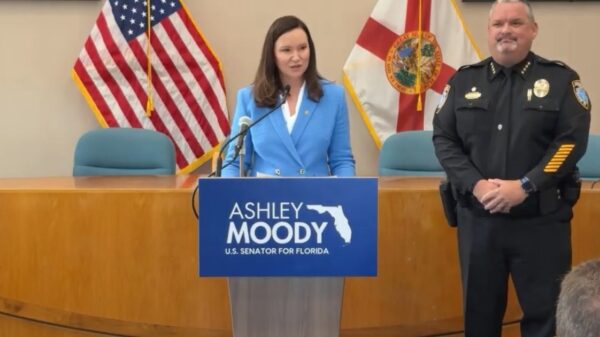Last week, Florida Attorney General Ashley Moody, along with the Federal Trade Commission (FTC) and agencies from 37 other states and the District of Columbia, announced the shuttering of a massive telefunding operation that bombarded 67 million consumers with 1.3 billion deceptive charitable fundraising calls, including many classified as illegal robocalls.
The defendants collected more than $110 million using deceptive solicitations. This massive robocall shutdown came at the end of National Consumer Protection Week.
Associated Community Services (ACS) and its sister companies allegedly conned generous Americans into donating to charities that ACS knew would not provide the services promised. The complaint names ACS, along with Central Processing Services and Community Services Appeal; their owners Dick Cole, Bill Burland, Barbara Cole and Amy Burland; and ACS senior managers Nikole Gilstorf, Tony Lia, John Lucidi and Scot Stepek. In addition, the complaint names Directele Inc. and The Dale Corporation, two fundraising companies allegedly operated by Gilstorf and Lia as spinoffs of ACS. The defendants agreed to settlement terms, including fundraising bans and a monetary judgment that will see funds directed to support charitable purposes as donors originally intended. Pending court approval, most of the total judgment amount of $110 million will be suspended due to the defendant’s’ inability to pay, and approximately $500,000 is expected to be recovered and distributed to one or more charities.
“The number of deceptive robocalls made by this operation is truly shocking. For these defendants to automate billions of calls on behalf of charities only to line their own pockets is utterly disgraceful. I am proud to partner with the FTC and other state agencies to shut down this deceitful operation that harassed millions of Americans across the country, including many here in Florida,” Moody said.
Acting Director of the FTC Bureau of Consumer Protection Daniel Kaufman said, “Deceptive charitable fundraising can be big business for scammers, especially when they use illegal robocalls. The FTC and our state partners are prepared to hold fraudsters accountable when they target generous consumers with lies.”
According to the complaint, the defendants knew that the causes for which they were fundraising—support for homeless veterans, victims of house fires, cancer patients, etc.—went to organizations that spent little or no money on the charitable causes they claimed to support. The defendants kept as much as 90 cents of every dollar solicited.
The complaint alleges that ACS made harassing calls, noting that ACS called more than 1.3 million phone numbers more than 10 times in a single week and 7.8 million numbers more than twice in an hour. More than 500 phone numbers were called 5,000 times or more. ACS made more than 31 million calls to Floridians between 2016 and 2019.
The complaint also alleges that the defendants made their deceptive pitches since at least 2008, enticing well-meaning Americans to donate through the defendants’ high-pressure tactics. In many instances, ACS and Directele knowingly violated the Telemarketing Sales Rule by using soundboard technology in telemarketing calls and also violated Florida’s Deceptive and Unfair Trade Practices Act, the FTC Act and other numerous state laws.
Funds surrendered by the defendants pursuant to the settlement will be held by the Florida Attorney General’s Office in an escrow account. Following a motion by the participating states and approval by the court, the funds will be distributed to one or more legitimate charities that support causes similar to those for which the defendants solicited.
Joining in the case with Attorney General Moody and the FTC include the attorneys general of Alabama, California, Colorado, Connecticut, Delaware, the District of Columbia, Georgia, Illinois, Indiana, Iowa, Kansas, Kentucky, Louisiana, Maine, Maryland, Massachusetts, Michigan, Missouri, Montana, Nebraska, Nevada, New Hampshire, New Jersey, New Mexico, New York, North Carolina, Ohio, Oklahoma, Oregon, Pennsylvania, Tennessee, Texas, Utah, Virginia, Washington, West Virginia, Wisconsin and Wyoming; the Florida Department of Agriculture and Consumer Services; the secretaries of state of Colorado, Georgia, Maryland, North Carolina and Tennessee; and the Utah Division of Consumer Protection. Assistant Attorney General Ellen Annaliese Bullock of the Consumer Protection Division handled this action for the Florida Attorney General’s Office.




















